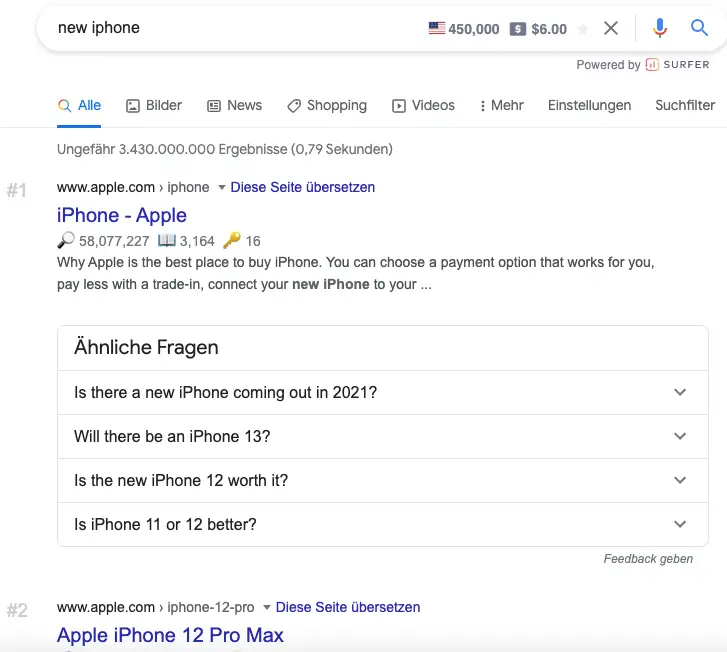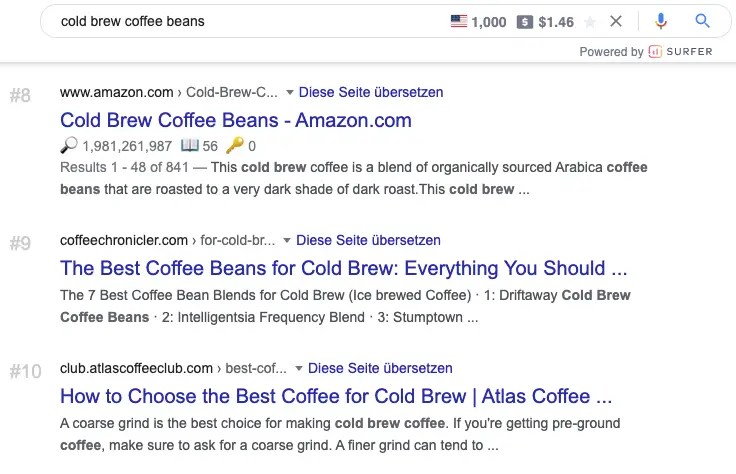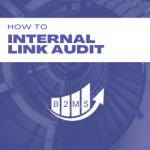How to check and fix keyword cannibalization in SEO
Keyword Cannibalization Definition
The definition of keyword cannibalization in SEO is that multiple pages rank for the same keywords on your website. This happens when you target the same or similar keywords on different pages and search engines like Google don’t know which page to prioritize in the search results.
What is Keyword Cannibalization in plain English?
Keyword cannibalization occurs when you have more than one page that ranks for the same keyword as another. In this case, the affected pages compete with each other for the same keyword as they would with external competing websites. That can hurt your rankings and overall SEO performance.
The consequences of SEO keyword cannibalization include fluctuating SERP rankings, domain authority loss, lower keyword rankings, and lower CTRs. It can also impact revenue due to lower website traffic overall and lower conversion rates due to the wrong page ranking.
Search engines simply don’t understand which page to choose over the other. The search engines only understand the HTML code on your website and see the keyword signals you’ve given them.
What’s an example of Keyword Cannibalization?
You’ve written a blog post about the main keyword of your solution. Let’s say it’s about How to cold brew coffee. You’ve optimized the article for the keyword cold brew coffee. After some time you add another blog post about the difference between iced and cold brew coffee. Additionally, you are selling cold brew coffee products on your website, too.
You probably have three pages that you are trying to rank for at Google for the term cold brew coffee. At least Google and Co see it that way.
But isn’t it better to rank with multiple pages for the same keyword?
You are right, it would be nice to have 10 pages about your main keyword and appear for all 10 pages one results but Google always wants to deliver the best experience for the user. They would want to provide unique resources so the user can find what she is looking for.
It’s possible to rank with 2 different pages for the same term, but this usually happens for high authority pages, like Apple. When I googled new iphone Apple’s iPhone category page, as well as the iPhone 12 page, were ranked on number 1. and 2.

This can also happen for different search intents for the same keyword. (Disclaimer, I couldn’t find an example where the same domain ranked for two different search intents).
Anyways, in our cold brew example, I searched for cold brew coffee beans and found two different search intents – educational and purchase intent:

Amazon’s shopping page is in the middle of educational content. That could be working for your business as well. Service and product pages might be ranking as well as an educational blog post about this topic. However, that usually works best for high authority pages and potentially branded search terms.
How to check keyword cannibalization
Identifying SEO keyword cannibalization can be done through a manual keyword matrix or various SEO tools out there. Simply, list all indexed pages and write down all associated keywords for this page in another column. Don’t take a too large timeframe as a cannibalization issue may be resolved. Next, check the list for any duplicated keywords.
Google Search Console as a free keyword cannibalization checker tool
Google Search Console is the best free keyword cannibalization checker tool. Go to your performance dashboard and navigate to pages. Select a specific page and head back to the search query tab. Here you can see every keyword that has been associated with the specific landing page in the selected time frame.
It’s recommended to export the results and create a single page/keyword matrix.
Unfortunately, you will have to do this for every page you suspect cannibalizing keywords.
Another approach is to select a specific keyword you suspect of ranking for multiple pages. Maybe you’ve seen the SERP ranking fluctuating heavily or decreased performance like lower CTRs, fewer clicks, and impressions, as well as higher average position. It’s good to enable the comparison time frame in Google Search Console to identity performance changes.
When selecting a specific search query you will see which pages the keyword is associated with. Ideally, you only see one page in the Landing Page tab.
What are indicators of cannibalizing keywords?
There are also some signs of keyword cannibalization in SEO you may notice without conducting an in-depth cannibalization audit.
- Bouncing keywords in through the rank tracking. If keywords bounce on and off dramatically that means that Google doesn’t really know what to do with this keyword and it tests a lot. You may see a keyword disappearing from rank 6 to 100 and coming back up within the next few days.
- A new blog post doesn’t get as much traffic as usual. If you have a good foundation you usually see similar performance for new content pieces. If you notice that one new article doesn’t get the traction you usually see, it might be because of competing keywords within your domain
- Alerts in your SEO tools like SEM Rush.
How to fix keyword cannibalization
In order to fix keyword cannibalization update every page that’s impacted by the competing search term. You can optimize the right page by increasing the keyword relevancy and keyword density and decrease the SEO signals for the key-phrase in the wrong post.
Some techniques that solve keyword cannibalization:
- On-Site SEO optimization: Include/exclude the keyword from the SEO title tag and headlines.
- Add/remove text passages to further increase/decrease keyword relevancy.
- Write from an angle: even if you have competing pages for the same keyword, you can write from a different point of view to cover long-tail keywords by also avoiding direct keyword cannibalization.
- Include/avoid the keyword in the URL.
- Increase/update internal linking with meaningful anchor texts. Update all pointing links for related keywords to the right page with the exact or very related keyword. When linking to the wrong page use different anchor text to further decrease the association with the targeted term.
- Update further SEO signals like image alt attribute or bold/strong text. Highlight the targeted keyword once in bold on the right page, and highlight a different term on the wrong page.
- If this doesn’t help or you want to delete an older/less relevant page make sure to 301 redirect to the new page that targets the keyword.
- Don’t overuse this feature, but request a reindexing of the impacted pages within Google Search Console after you’ve fixed keyword cannibalization.
How to avoid keyword cannibalization
- Have content and keyword strategy in place. A content calendar can also help to show which keywords have been targeted already.
- Conduct keyword research.
- In the content brief/outline check Google search console for related keywords and either avoid the terms in the blog post-to-be or remove the keywords for the existing article.
- URL structure – think ahead and have specific URLs instead of keyword dumps. URLs are a great factor for search engines to associate a page with a keyword, but they are very hard to fix.
- Implement a great linking structure. Links are still a very unused SEO superpower. Most marketers only implement links when publishing new content but forget to include or update links in existing content.
- Related to linking and strategy, have a clustered content strategy in place. This will not just help you to avoid keyword cannibalization but also boost your overall keyword relevancy.
Clustered content and keyword cannibalization
When done correctly, content clusters help to solve keyword cannibalization in four ways:
- The main keyword/topic is understandable for search engines and long-tail keywords don’t compete with the main keyword.
- The clustered content approach forces you to think ahead and look at targeted keywords in the bigger picture.
- The linking structure makes it clear to Google what each content piece is really about and how it fits into the overall website structure.
- Finally, the main keyword will rank higher.
Final thoughts
Keyword cannibalization is an issue if you have don’t have a content plan in place. Constantly think about cannibalization when creating new content and audit your pages regularly to identify keyword cannibalization. The downsides of the SEO issue are too severe to ignore.

Sascha is a Lifecycle Marketing Consultant with over 8 years of digital marketing experiences in Silicon Valley, the UK, and Germany.
After leading the demand generation for a 100+ million company, he decided to venture out on himself. He’s now helping clients to attract and convert more leads and customers.
His main focus are SEO, paid media & marketing automation – all with the focus to tie marketing campaigns to revenue.
Sascha has been featured in industry publications.



